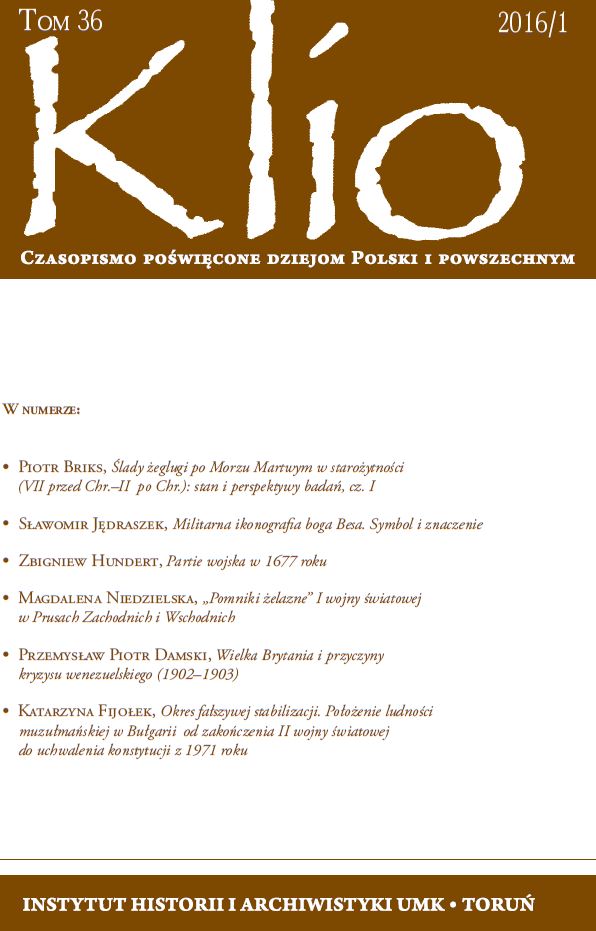Okres fałszywej stabilizacji. Położenie ludności muzułmańskiej w Bułgarii od zakończenia II wojny światowej do uchwalenia konstytucji z 1971 roku
Times of false stability. Situation of Bulgarian Muslims from 1944 to 1971
Author(s): Katarzyna FijołekSubject(s): Political history, Social history, WW II and following years (1940 - 1949), Post-War period (1950 - 1989), History of Communism, Ethnic Minorities Studies
Published by: Wydawnictwo Naukowe Uniwersytetu Mikołaja Kopernika
Keywords: Bulgarian muslims; enforced assimilation; Bulgarian communism; ethnic policy;
Summary/Abstract: This paper analyses the situation of Bulgarian muslims from 1944 to 1971 under communist regime. The policy of Bulgarian Communist Party (BCP) to the Bulgarian muslims had changed many times during this period. The ethnic policy was modified from the provisional rights and privileges to the attempts of enforced assimilation. Although few years after World Waw II muslims in Bulgaria participate in social life, had many opportunities for educational and cultural development, since 1956 the government gradually moved away from this approach. Bulgarian communism starts to regard ethnic difference as a destabilizing factor. Before this policy had culminated in 1980s, BCP introduced new measures for enforced assimilation towards gypsies and Bulgarian-muslims (pomaks). In 1971 the new constitution promoted the idea of national homogeneity within Bulgarian ethnic nation.
Journal: Klio. Czasopismo poświęcone dziejom Polski i powszechnym
- Issue Year: 36/2016
- Issue No: 1
- Page Range: 111-126
- Page Count: 16
- Language: Polish

